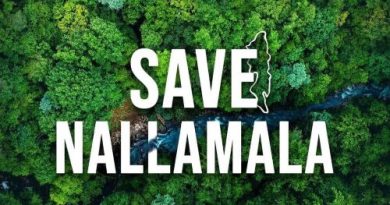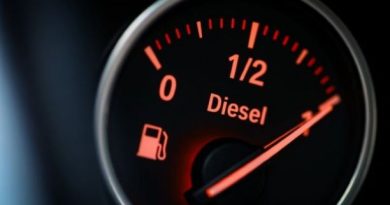UK Takes a U-Turn on Fracking Ending 7-Year Moratorium
As Spain bans petrol cars, fracking, fossil fuel subsidies with aims for going 100% renewable, UK took a U-Turn on Shale gas exploration and allowed a fracking company Cuadrilla to start exploratory project in Lancashire.
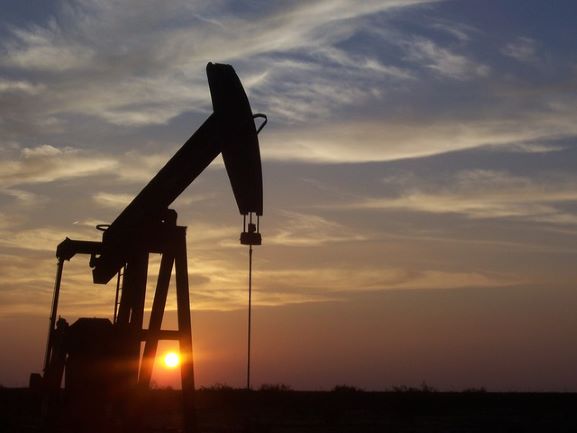
Marking another Brexit, UK has taken a U-turn from fracking in the first week of November. Ending its 7 year streak after halting all fracking activities with its boundaries, the United Kingdom, despite heavy public uproar, has restarted the drilling. Fracking company called Cuadrilla Resources has launched a three-month-long exploratory project in the county of Lancashire in the northwest of England after halting its activities in 2011.
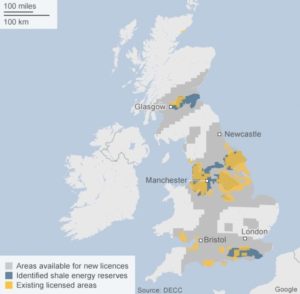
United Kingdom has large swathes of shale gas reserves in Northern England. The UK government hence has awarded more than 100 Licences to companies like Cuadrilla, who wants to pursue oil and gas exploration in certain areas.
The controversial fracking refers to the fracturing rocks apart using high pressure mixture of sand, water and other chemicals. The gas trapped between the rocks escape into the pipeline and travels up for storage. All this while the empty space created by the escaping gas creates a vaccum, and the mixture gets deposited inside the cavity. This stops the creation of sink holes. The fissure creation and escaping of shale gas causes seismic activity in such areas.
So why the public cry? In 2011, Cuadrilla halted its operations because it found out that shale gas test drilling were triggering the tremors. The government panel however deemed these quakes to be too small to cause structural damage above ground. After 7 years residents of the area are concerned that fracking will bring those days back.
Last month there were tremors reported in Lancashire. The seismic activity near the site caused the Fracking Activity to stop but the exploratory work is expected to restart again. The company has so far triggered 37 tremors in Lancashire but senior Cuadrilla executive said that this summer it did not expect to cause earthquakes that would be serious enough to force it to halt operations.
Under current regulations in UK, Fracking must stop if a 0.5 Richter scale quake is registered. So far, Cuadrilla has not triggered any tremors since Sunday 4 November, when a 0.7-magnitude quake was registered.
Cuadrilla is looking at the opportunity that fracking has given to various other oil companies like Shell or Exxon in US. For seven straight years, the US has pumped more oil and gas out of the ground than any other country. This has left Russia and Saudi Arabia to constrain supply to maintain global oil and gas prices.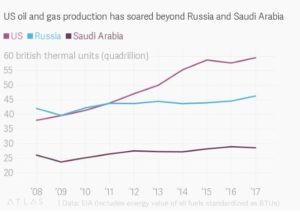
The EIA estimates says that the US pumped 30 million barrels of oil per day in 2017, much higher than Russia and Saudi since 2008. How? The new fracking and drilling technology unlocked cheap ways for the oil companies to extract US shale oil and natural gas, even as consumption remained same.
Recent studies in US showed a new phenomena called fraccidents alongwith wastage of groundwater. According to a recent study by Duke University, the water use for hydraulic fracturing and wastewater production in major shale gas and oil production regions has increased; from 2011 to 2016, the water use per well increased up to 770% in US.
In many arid counties such as those in southern Texas, freshwater use for fracking is reaching or exceeding water use for people, agriculture and other industries combined.
Another bone of contention for scientists, geologists and environmentalists have been with Fracking Fluid.
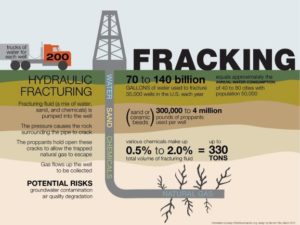
For each frack, 80-300 tons of chemicals may be used, which are selected from a list of 600 different chemicals. Though the composition of most fracking chemicals remains a secret and away from disclosure through various “trade secret” exemptions under different laws. Scientists who analysed fracked fluid have identified volatile organic compounds (VOCs) such as benzene, toluene, ethylbenzene and xylene – all of which pose significant dangers to human health and welfare.
There is another danger of contamination. Fracking fluid, can be contaminated with heavy metals like arsenic, a known human carcinogen, and leak into local waterways, polluting drinking water as well as groundwater. People who live near fracking wells have a heightened risk of developing cancer, asthma, and other serious birth ailments associated with inhaling or ingesting toxic chemicals involved in the fracking process
This is why France became the first country in 2011 which posed a blanket ban on Fracking. The French were soon after joined by Bulgaria, Ireland, to an extend by Germany and now by Spain in their quest to become Renewable reliant for their energy needs. These countries have put bans on Fracking till there is concrete proof that fracking doesn’t affect their environment and water bodies.


